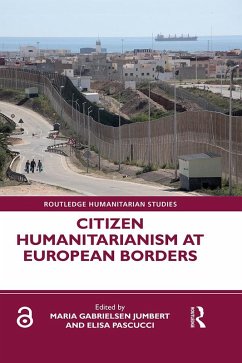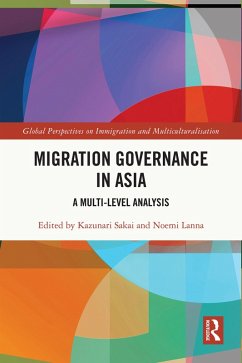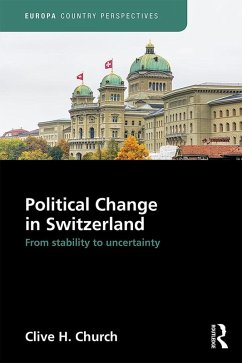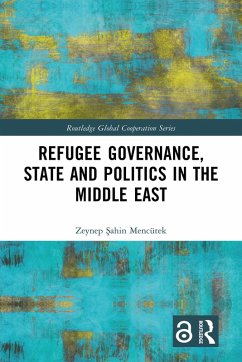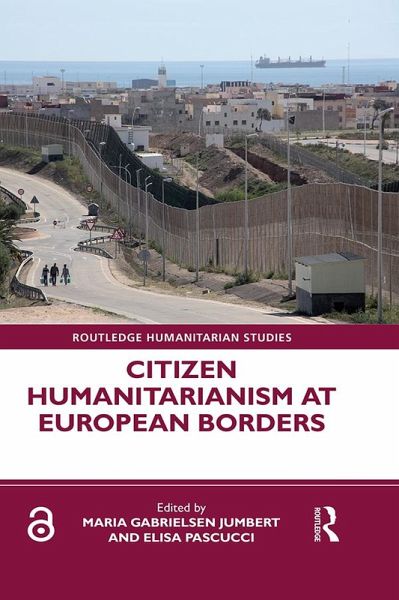
Citizen Humanitarianism at European Borders (eBook, ePUB)

PAYBACK Punkte
0 °P sammeln!
At a time of escalating conflict between states and NGOs engaged in migrant search and rescue operations across the Mediterranean, this book explores the emerging trend of citizen-led forms of helping others at the borders of Europe.In recent years, Europe's borders have become new sites of intervention for traditional humanitarian actors and governmental agencies, but also, increasingly, for volunteer and activist initiatives led by "ordinary" citizens. This book sets out to interrogate the shifting relationship between humanitarianism, the securitization of border and migration regimes, and ...
At a time of escalating conflict between states and NGOs engaged in migrant search and rescue operations across the Mediterranean, this book explores the emerging trend of citizen-led forms of helping others at the borders of Europe.
In recent years, Europe's borders have become new sites of intervention for traditional humanitarian actors and governmental agencies, but also, increasingly, for volunteer and activist initiatives led by "ordinary" citizens. This book sets out to interrogate the shifting relationship between humanitarianism, the securitization of border and migration regimes, and citizenship. Critically examining the "do it yourself" character of refugee aid practices performed by non-professionals coming together to help in informal and spontaneous manners, the volume considers the extent to which these new humanitarian practices challenge established conceptualisations of membership, belonging, and active citizenship. Drawing on case studies from countries around Europe including Greece, Turkey, Italy, France and Russia, this collection constitutes an innovative and theoretically engaged attempt to bring the field of humanitarian studies into dialogue with studies of grassroots refugee aid and, more explicitly, with political forms of solidarity with migrants and refugees which fall between aid and activism.
This book is key reading for advanced students and researchers of humanitarian aid, European migration and refugees, and citizen-led activism.
The Open Access version of this book, available at http://www.taylorfrancis.com, has been made available under a Creative Commons Attribution-Non Commercial-No Derivatives (CC-BY-NC-ND) 4.0 license.
In recent years, Europe's borders have become new sites of intervention for traditional humanitarian actors and governmental agencies, but also, increasingly, for volunteer and activist initiatives led by "ordinary" citizens. This book sets out to interrogate the shifting relationship between humanitarianism, the securitization of border and migration regimes, and citizenship. Critically examining the "do it yourself" character of refugee aid practices performed by non-professionals coming together to help in informal and spontaneous manners, the volume considers the extent to which these new humanitarian practices challenge established conceptualisations of membership, belonging, and active citizenship. Drawing on case studies from countries around Europe including Greece, Turkey, Italy, France and Russia, this collection constitutes an innovative and theoretically engaged attempt to bring the field of humanitarian studies into dialogue with studies of grassroots refugee aid and, more explicitly, with political forms of solidarity with migrants and refugees which fall between aid and activism.
This book is key reading for advanced students and researchers of humanitarian aid, European migration and refugees, and citizen-led activism.
The Open Access version of this book, available at http://www.taylorfrancis.com, has been made available under a Creative Commons Attribution-Non Commercial-No Derivatives (CC-BY-NC-ND) 4.0 license.
Dieser Download kann aus rechtlichen Gründen nur mit Rechnungsadresse in A, B, BG, CY, CZ, D, DK, EW, E, FIN, F, GR, HR, H, IRL, I, LT, L, LR, M, NL, PL, P, R, S, SLO, SK ausgeliefert werden.




